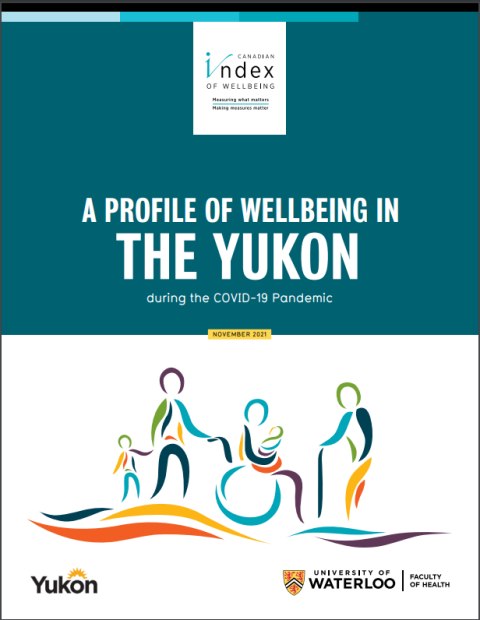
The Government of Yukon has released a final report by the Canadian Index of Wellbeing (CIW) that provides a snapshot of the quality of life in the Yukon. The report combines results of a major survey that happened in summer 2020, with indicators of wellbeing gathered from available national sources to provide a profile of the Yukon and its residents.
The information will now be used to inform evidence based policy development, funding decisions, program development, and service delivery.
The report is part of a national research project by the University of Waterloo, which focusses on quality of life beyond Gross Domestic Product (GDP).
Read the Canadian Index of Wellbeing report.
Read the Canadian Index of Wellbeing Summary of Results.
Key report highlights:
Overall satisfaction
75% of Yukoners are satisfied or very satisfied with their lives overall.
Yukoners are engaging in democracy
Yukoners vote more than residents do in provinces.
- 64.2% voter turnout in recent territorial election.
- 35% to 50% of eligible voters elsewhere in Canada turned out for their most recent provincial elections.
- Higher incomes are associated with democratic engagement and linked to greater feelings of wellbeing.
Yukoners have positive perceptions of the quality of the environment
The environment is the basis for our health, our communities, and our economy.
- 95.3% agree they have opportunities to enjoy nature near where they live.
- 87.5% agree that the quality of that natural environment is very high.
- 93.7% feel a personal responsibility to protect the environment.
Work-life balance
Finding a balance between work and other daily activities is a key factor in personal and community wellbeing.
- 56.9% of Yukoners agreed that they had good work-life balance.
- 48.9% of parents with young children feel existing childcare services are not adequate.
Sense of belonging to the community
- A plurality of Yukoners generally feel strong connection to their communities.
- 36.7% report their sense of belonging was very or somewhat strong
- 25.7% felt a very or somewhat weak sense of belonging to their communities.
- Low income household residents have less opportunity to engage with others and with community supports.
- More younger adults and those over 65 live in low income households and have a lower sense of belonging to the community.
Social isolation
Feeling supported and connected to others can enhance Yukoners sense of belonging.
- 25.2% of Yukoners are feeling socially isolated.
- Groups that are more likely to feel socially isolated include:
- living with a disability (43.7%);
- living with a chronic illness (36.5%);
- single adults (39.0%);
- single parents (37.0%); and
- those 15 to 34 years of age (31.0%).
Self-reported health
Health remains an important area for the Yukon to focus efforts on coming out of the pandemic.
- 72.3% engage in moderate or vigorous activity each week, which is 15% more than the rest of the country.
- 31.3% said their physical health is very good or excellent
- 32.9% said mental health is very good or excellent.
Housing security
Affordable housing is an important area for the Yukon to focus efforts on in the years ahead.
- 43.8% indicated they are spending 30% or more of their income on housing,
- 58.2% of Yukon renters said they spend more than 30% of their income on housing which is, again, almost twice the percentage of renters across Canada overall (33.0%).
Experiences of discrimination
Discrimination affects sense of belonging and mental and emotional wellbeing.
- 55.8% experienced at least some form of discrimination due to characteristics such as their ethnicity, race, gender, or sexual orientation.
- 37.7% experienced discrimination occasionally, very often, or all of the time.
For more information or to contact members of the project team, please email ecoinfo@yukon.ca